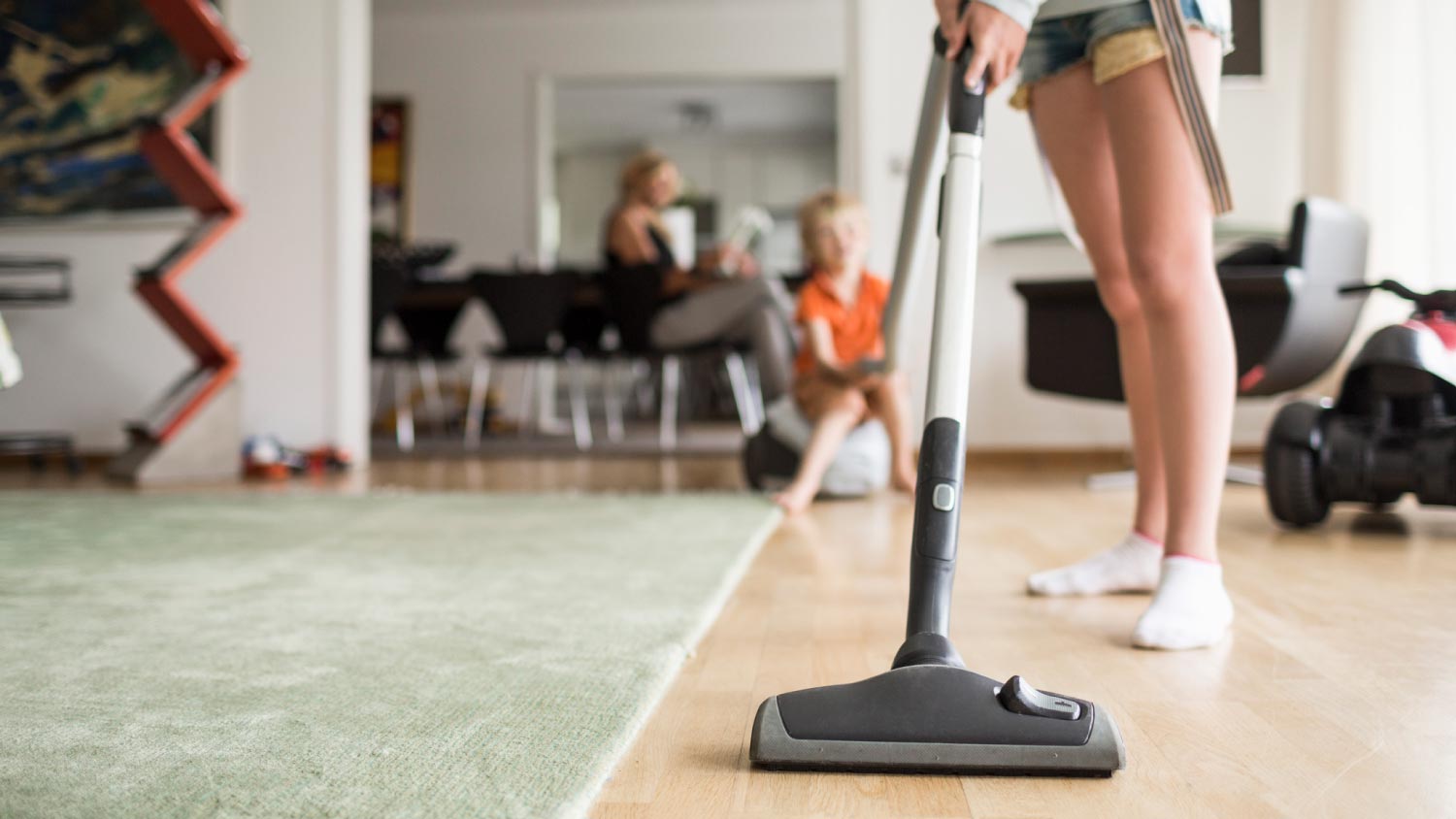
It’s important to know bed bug treatment costs if you have an infestation. Our guide covers different treatment methods and cost factors to eliminate these pests.
The adage says that cockroaches will survive anything—but you can eliminate them from your air vents


If you need to learn how to get rid of roaches in your air vents, you’re in the right spot. Kicking roaches out of air vents requires installing vent screens, sealing any cracks or holes in your ductwork, regularly cleaning your vents, and addressing any outstanding moisture issues.
Here’s what you need to know about dealing with roaches in your air vents.

You’re probably more than eager to kick those cockroaches out of your air vents by now. Fortunately, you have some options when it comes to getting your HVAC system cockroach-free.
Do an external audit of your home. Do you see cracks or holes in your walls? If so, patch them up with caulk, concrete, or silicon to prevent pests from getting in through those holes. You can pick up patching materials at any local hardware store.
A surefire way to prevent roaches from entering your air vents is to install vent screens. This method is relatively inexpensive, costing about $20 per vent screen. They are easy to install and don’t require help from an AC or pest control professional.
Roaches like moisture, so if there are any plumbing leaks around your AC unit, you could be inviting cockroaches to set up residence. If you notice any dripping water or leaking pipes, call in a plumber near you to assess the situation and repair or replace any broken pipes.
Roaches are specific about their preferred temperature, and anything below 77 degrees Fahrenheit is too cold for them. If you have roaches in your vents, set your AC temperature below 77 degrees, and they’ll be less likely to camp out in there.

Dirt, dust, and dander all provide food sources for roaches, plus materials that they can use to build nests. Roaches can’t thrive in a clean environment, so keeping your house tidy goes a considerable way towards keeping your home and vents roach free. Don’t forget to spruce up spaces like closets. Vacuum your furniture regularly to pick up pet hair, dander, and crumbs to keep your home dust-free.
When debris collects in your gutters, then rain wets that debris down, you end up with an ideal environment for cockroaches to nest. These pests build homes close to your home, and then when they go in search of food, it’s easy for them to get into your home through cracks and holes and end up in your ducts.
Clean your gutters at least once a year and get them inspected regularly to help keep your home safe and roach-free.
If you have a cockroach problem in your vents, it’s a good idea to hire a local cockroach control professional to clear out what’s attracting the roaches. They’ll be able to do an inspection of your system, clean your AC evaporator coils, and recommend whether or not a complete duct cleaning is necessary to get rid of the buildup that could be providing a food source.
From there, you can also call in a local air duct cleaning service to clear your system and rid your ducts of any debris left behind by your unwelcome guests. It’s also probably a good idea to reach out to a pest control company near you to help prevent the roaches from coming back.
A roach infestation in your air vents is unpleasant, but by staying vigilant for signs of this problem, you can stop it early. Be on the lookout for these warning signs of roaches living in your air vents:
Seeing cockroaches crawling near or on the air vents
Smelling a musty, sweet odor in enclosed spaces
Hearing rustling or scuttling sounds near air vents
Seeing dead roaches or shell casings near air vents
Seeing dark droppings near air vents and ductwork
If you’re still seeing roaches after you’ve taken steps to keep them away, it might be time to call in the pros. A local roach exterminator has the expertise and tools to eliminate roaches from your home with targeted treatments.
Exterminators not only eliminate the current infestation but also provide solutions to prevent future roach reunions. Having that peace of mind alone can be worth paying the $100 to $600 on average to hire an exterminator.
Some signs that you should call an exterminator include:
You’re seeing roaches frequently and in large numbers.
DIY methods aren’t working.
You notice damage to your home, like deteriorating insulation.
You want the assurance of a professional handling the problem.
Roaches are sneaky little bugs, and while some may look big, they can squeeze themselves into pretty much anywhere. When setting up camp, they look for a few things:
Moisture
A moderate temperature
A regular food source
Darkness
Your HVAC system provides the ideal situation for roaches to stay for a while. Unfortunately, your air conditioner always has water near it because of the condensation it creates while running. While the unit is outside, the indoor component (called the air handler) usually resides in a dark part of your home, like the attic or a closet. Your AC unit not only blows cool air into your house, but it also sucks in warm air, bringing with it organic matter, like hair, that roaches feast on.
Roaches can sneak in through tiny crevices to get into your vents. They’ll often either come in through the AC drain pipes or find a faulty seal and crawl in that way.
Once they’re in the vents, they can easily make their way through your ductwork and access your whole house. Remember, for every cockroach you see in your home, it’s safe to assume there are hundreds that you can’t see. We know that’s not exactly a comforting thought.
Aside from being big, unsightly, and scary, roaches can cause serious health problems for you and your family. They are a source of high-bacterial pathogens that cause pneumonia and other respiratory problems, like allergies and asthma attacks.
If someone in your home is allergic to cockroaches, their presence could cause bronchial asthma, rashes, chronic sinus infections, and ear infections, among other issues. It’s worth the cost of hiring a cockroach exterminator—typically $100 to $600—to rid your home of these pests.
From average costs to expert advice, get all the answers you need to get your job done.

It’s important to know bed bug treatment costs if you have an infestation. Our guide covers different treatment methods and cost factors to eliminate these pests.

Find out how much it costs to remove armadillos and stop them from coming back. Know how much to budget to humanely remove these pesky critters from your yard.

Discover mosquito control service cost estimates, including average prices, key cost factors, and tips to save on professional mosquito treatments for your home.

Worried you might have bats in your attic? Learn five tell-tale signs that bats have taken up residence in your home (that you shouldn’t ignore), and what to do about it.

Fruit flies and fungus gnats can appear similar but require different removal approaches. Learn the main differences between gnats vs. fruit flies.

Bed bugs are infamous for sticking around. Calling a bed bug removal pro is the best way to solve this problem for good: Here’s who to contact.